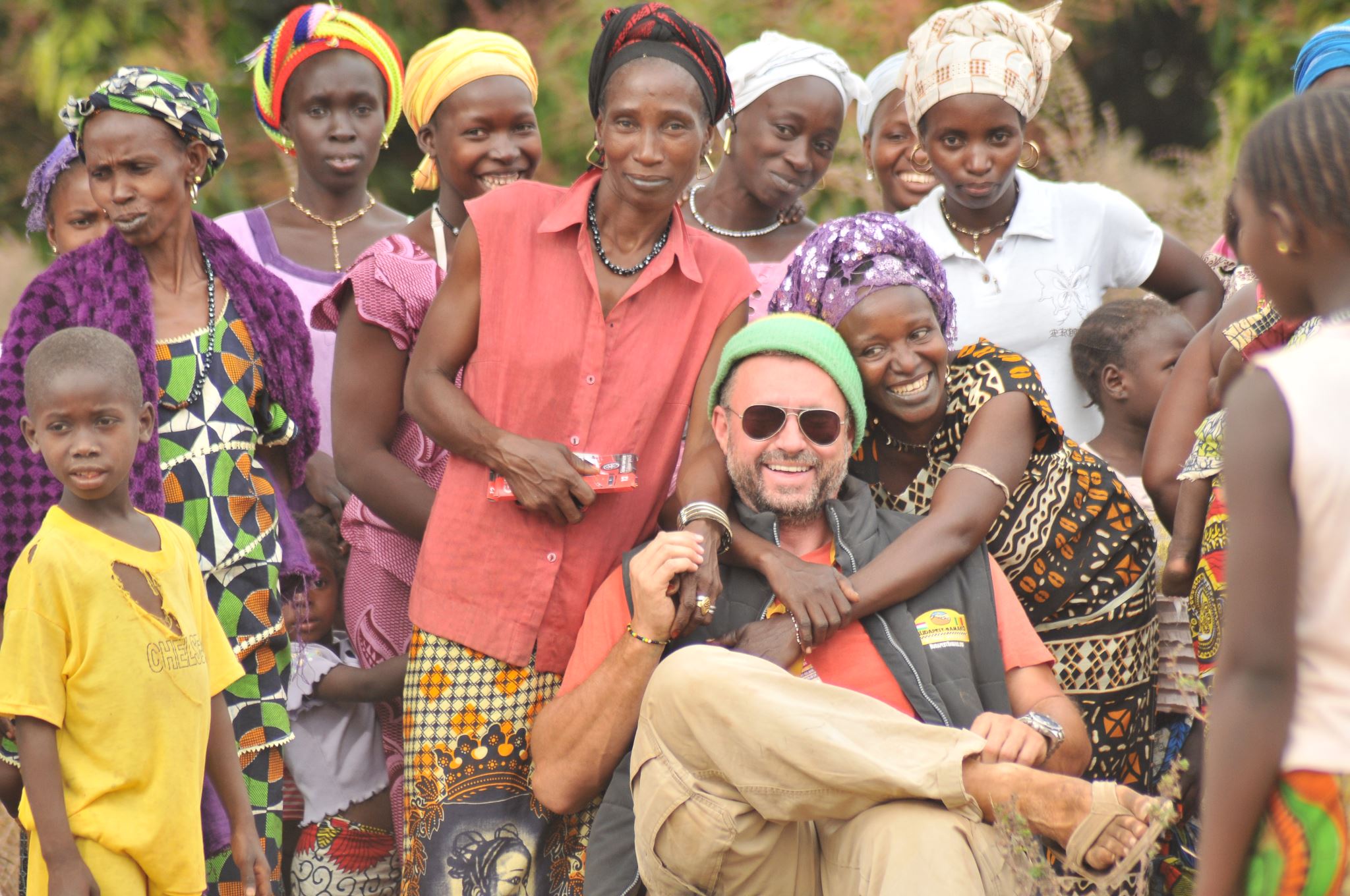When the purveyors of Andrew Szabo’s life insurance scrolled through his social media, they jacked up his premium by 20 percent. In his photos, the 53-year-old is nearly always on the move, in a kayak, on a bike, or in a vehicle, if not sat next to a fire in flip-flops. He’s the organizer of rallies on both sides of the Atlantic—the Baja XL in Mexico and the Budapest-Bamako straddling Europe and Africa. Andrew Szabo has seen it all.
Those who sign up for his rallies make their checks out to the Institute for Unsafe Living. He’s only able to bet on himself because he takes the dangers of overlanding so seriously. As he’d tell you, he doesn’t take risks. He mitigates them.
His events aren’t so much a race as a navigational and logistical challenge. Szabo bemoans the rise of Ikea’ed tours and the loss of navigation skills, especially in young people like his children. He can be found pack-rafting, taking his family to uninhabited islands, cooking outdoors, or biking through his home city of Budapest.
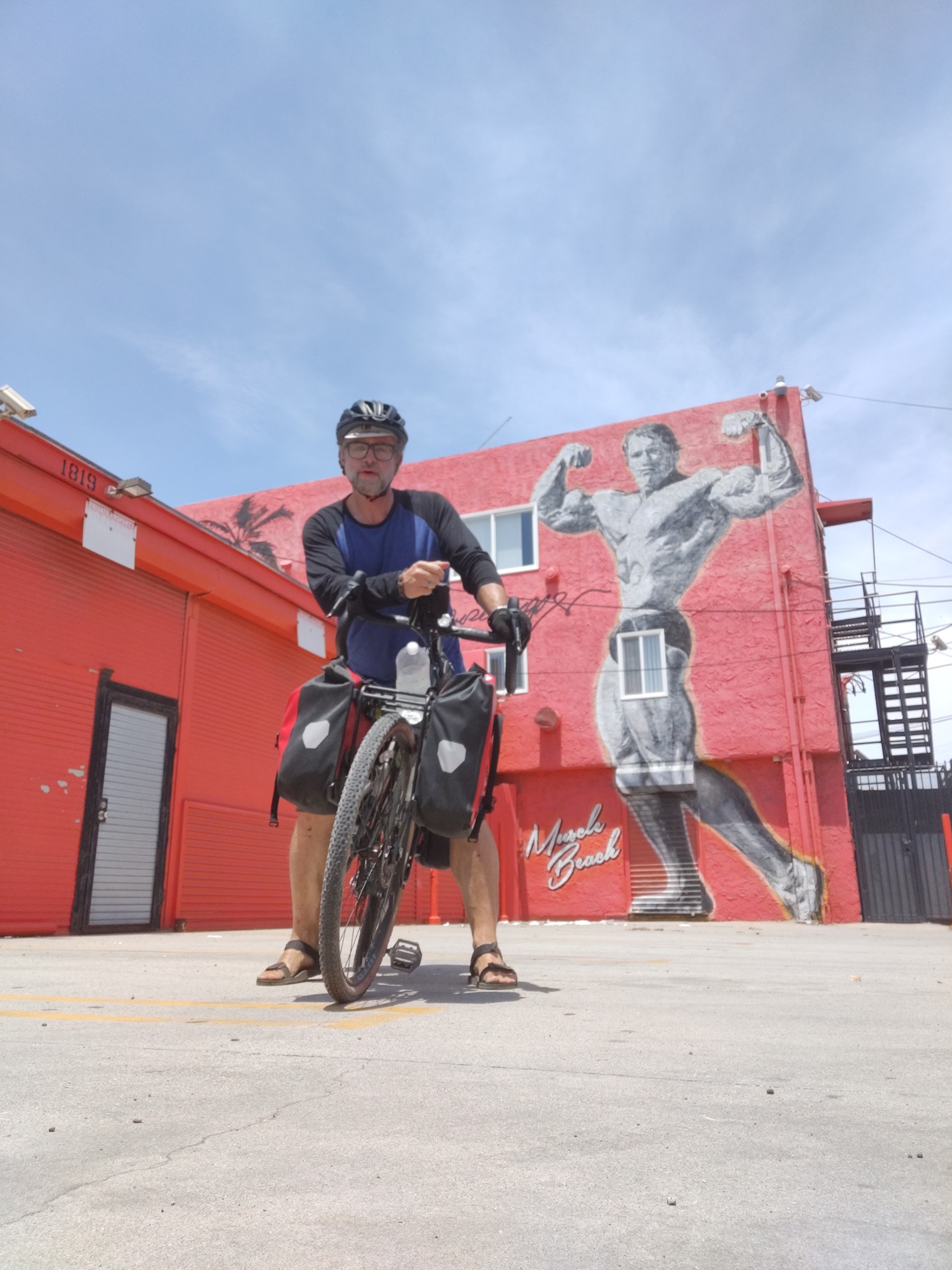
He organizes trips as one might set up fireworks, lighting the fuse and standing back to watch. He invites people to real adventure. To talk to other people. To go places they might have never otherwise been. And though he vows that he’s not going to be the one to come and save you if you get stuck, his events conjure a community where, chances are, someone else will.
The following interview is condensed from conversations over the rumble of a Jeep on dirt roads during his Baja XL rally.
How did you come to love the Baja Peninsula?
I was living in LA, and I’d seen most of California, but I lived three hours from Mexico and had never been here.
First, I went to Tijuana, and I loved it. I asked my daughter, ‘How do you feel about going on a spring break trip with your dad? We’ll just go down to Baja, check out animals, go camping, do whatever.” She said, ‘Yeah, let’s do it.’
We drove a Jeep Wrangler, and the first night, we stayed at this hot spring. Everything was so magical. We went out on a boat, we saw dolphins, we saw whales—first time I saw a gray whale in my life. The cacti were just beautiful. Even after I went back to LA and I was telling people where we [had been], they were like, ‘Oh my god. Is it safe there? What about the federales?’
Was there a time you were really freaked out?
Eight years ago, the first Baja XL, my friend and I came down to try that track. And we got stuck, the car in soft sand—it’s powder, silt. We couldn’t get the car out. Just completely stuck there.
I climbed to a hill, trying to look for some human settlement. We didn’t even have a proper GPS. We had somewhat of a GPS; I knew where the main road was, which was far. It would’ve been a 44-kilometer walk.
But I kept hearing a rooster somewhere. So I knew that there would be a ranch. And I tried to follow the sound of the rooster, and we found a ranch which looked totally abandoned. But they had some live animals, which was weird, and a tractor.
I said to my friend, “Let’s see if you can [hotwire] this tractor.” He’s an engineer.
He said, ‘How about you just unload the car and make it light?’ I said, ‘We can make the car light as a feather. You’re stuck in this soft sand; it’s like being stuck in water. It’s not going to come out.’
So we went, and he started the tractor. Then we found rope, a chain, and a shovel. It was like a video game—pick up all the gear you need. We need[ed] this tractor to pull out our car. [There wasn’t] any other solution.
The sun had gone down; it was dark now. Still, quiet. All of a sudden, we hear somebody screaming and two gunshots.
I say, ‘That wasn’t an abandoned ranch, and the guy just got home, and next he’s gonna find us and kill us. We can do two things: hide, or I can go back and use my best Spanish and diplomatic skills to talk us out of this situation.’
So that’s what I did. He had a gun in his hand when I went up to him [and tried to explain]. ‘We are so sorry. I have your tractor. I don’t want to steal it. I want to give it back to you. But we had an accident with our car…” And then, eventually, he came out and helped.
In the end, I gave him some money. He was so grateful and nice, saying, ‘Why don’t you guys spend the night here?’
I thought, Let’s just go. That was intense.
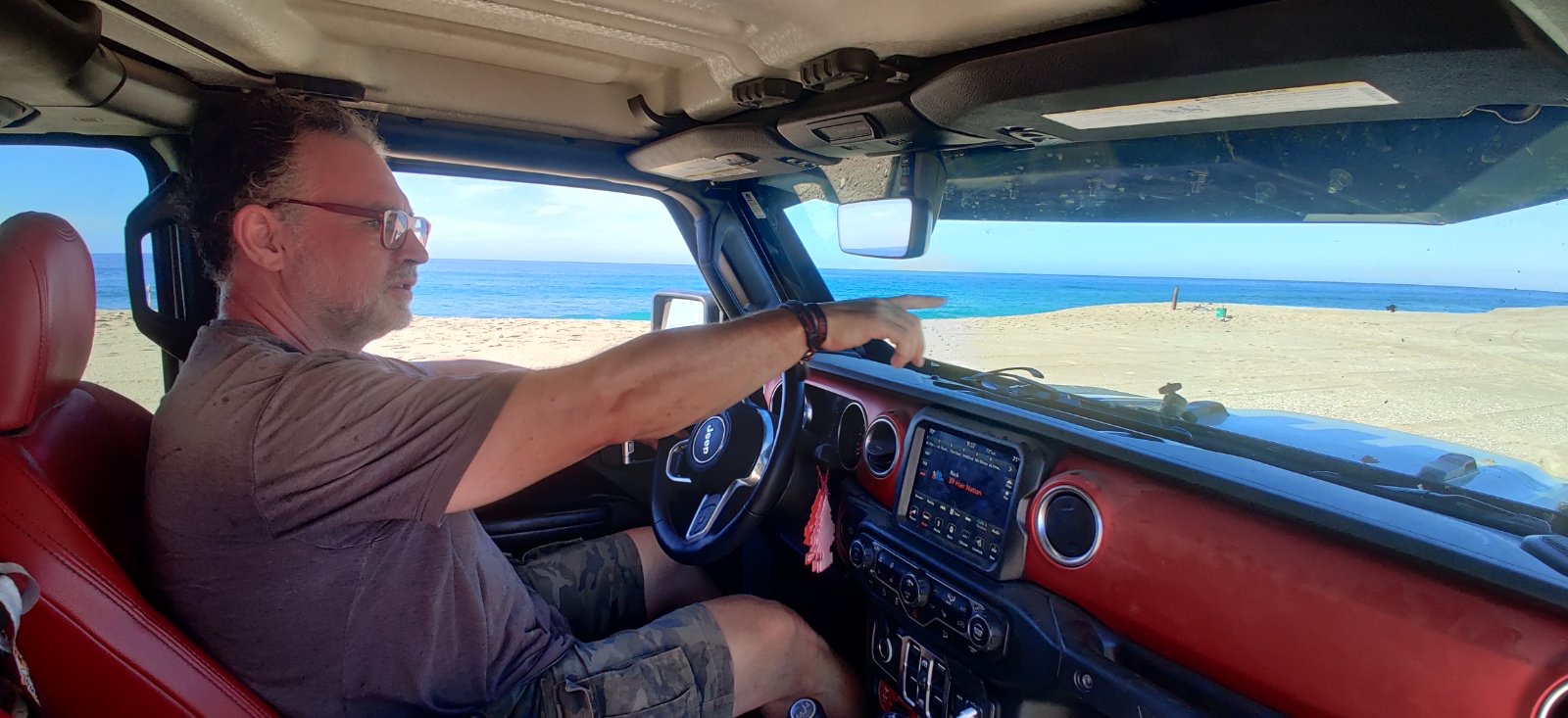
What is the most important thing to know about driving in the desert?
Don’t slow down when the sand is soft. Speed is always your friend. Have enough water.
In the Sahara, I learned that if you spend the night in the desert, always let somebody know you’re there and that you’re are visible.
How did you come to learn that?
So, for our other rally, we crossed the Sahara, north to south. I did the track riding there a couple of times, and I always went with locals, always had a local guide or a partner or somebody in the car who knew the ways and the area—Sahara skills.
So we would see a nomad and say hello and chitchat a little bit about what we’re doing or where we are going. There are just so many skills and so many things that you learn.
What was the first outdoor adventure you put together?
The first trip that I organized was when we went to Guinea in Africa, and we were supposed to go to Bamako, the capital of Mali. We had plane tickets, but the plane crashed in the swamp three days before we were supposed to take a flight. So, I had to organize this little African adventure. That was a total expedition organization. You couldn’t just rent a car. We sent a kid to the market to start spreading the word [to get drivers].
Twelve guys showed up in different rickety cars. We picked the two most optimistic-looking vehicles and went to the market to buy supplies. But we didn’t even have a map. That was a time when there was no Google Maps on your phone. We asked the guy how long it would take.
‘Ah, two days.’
How many days did it end up taking?
It ended up taking two days, but we drove night and day. It was during the rainy season. There were a lot of bugs. At the border crossing, we had to wake up the police chief to let us through in the middle of the night. And it was almost all dirt roads. Dirt roads with mud and big puddles.
And what kind of cars were you in?
One of them was an old Land Cruiser. The other one was a Suzuki Samurai, both equally crappy. We had a couple of breakdowns. But it was so beautiful. I said, ‘Let’s do this again. But let’s do a longer trip. Let’s go from one side of Africa to another.’
I started organizing. Then I [thought], ‘Let’s not go from one side to another because that’s really difficult. And there’s a lot of political uncertainty and some safety issues. Let’s go from north to south. And that’s when I came up with the Budapest-Bamako. Let’s go from Budapest to the capital of Mali. That’s plenty of adventure.’
I loved it because I’d come down to Africa to start planning it and to check out the routes and campsites. I fell in love with organizing [rallies] and exploring. People always ask me, ‘How did you find this place?’ I kept looking, and I found it.
I like sharing. I’m one of those guys who reads a good book and wants everybody else to read it, and if I have a fun trip, I keep telling everybody that it’s so amazing and you should do it.
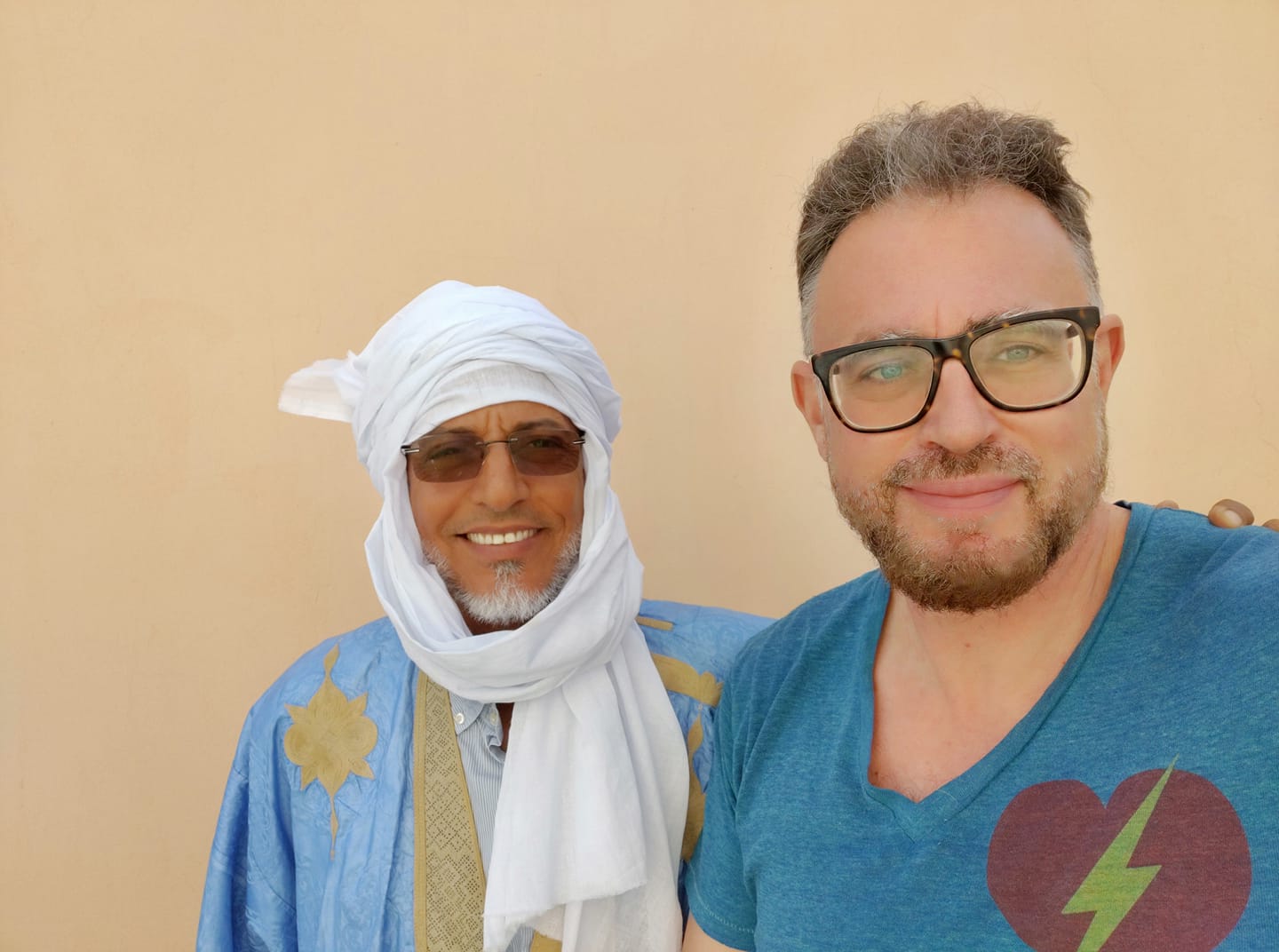
Did you grow up doing a lot of this kind of thing?
Not really, and I wish I could have done more. My parents never took us camping. And I always wanted to stay in a tent, and my parents were against it. One day, I discovered that my parents owned a tent, and it was in the garage. I thought, my whole life has been a lie.
Have you always been an event organizer, or did that come a little later for you?
Later. But I was always like a natural organizer or leader. I was running companies in my early 20s, so I was organizing things and managing people.
What kind of companies?
I had small internet startups. I was an early internet guy. I started a dating site called date.com. There are so many overlaps between entrepreneurship and travel. They both come with curiosity and taking risks.
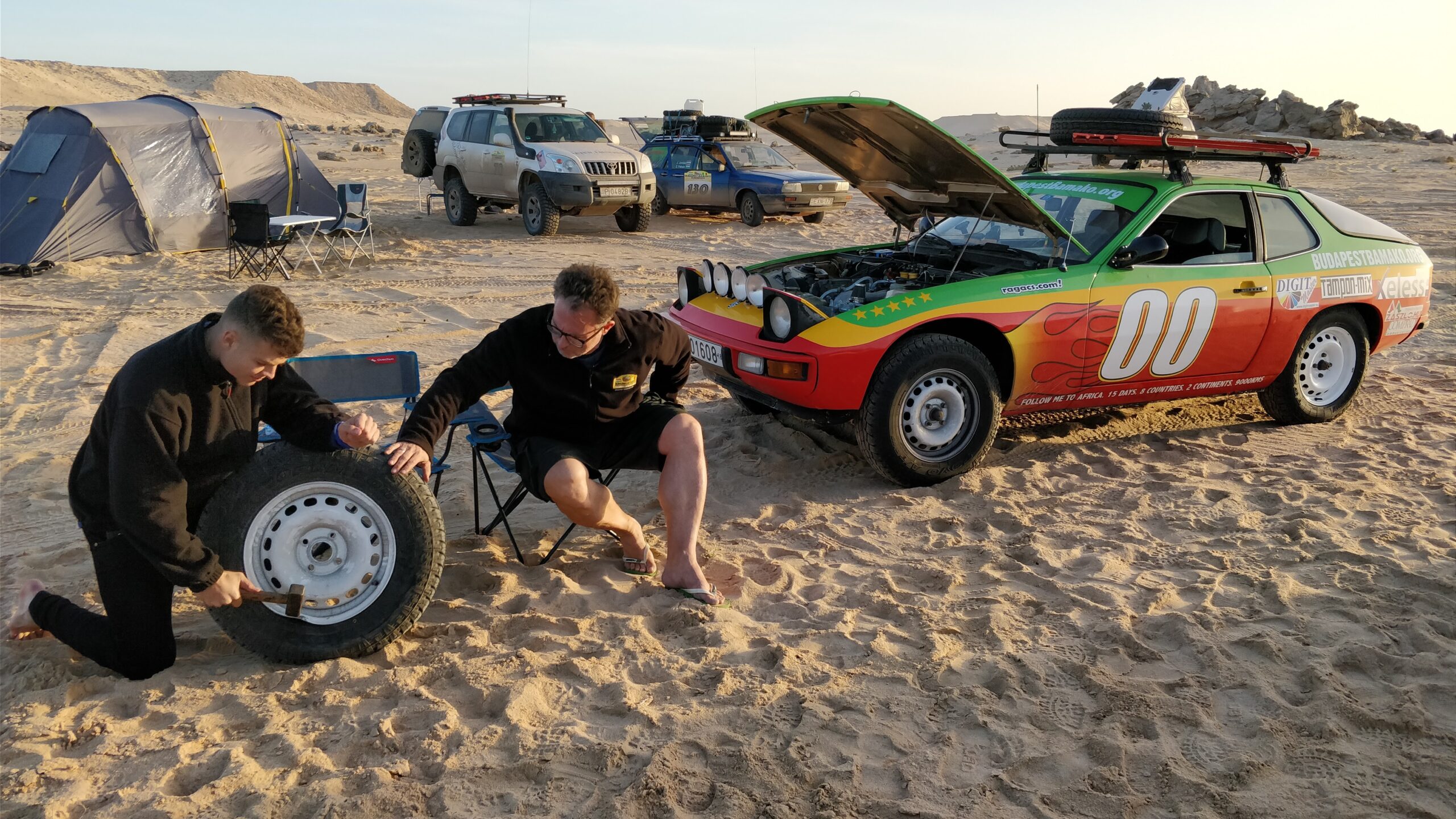
How would you describe people who are not overlanders or Baja XL people?
People who go and stay at the Four Seasons. People who were in White Lotus. People who enjoy package tours. The philosophy here is just to go against everything the commercial travel and tourism industrial complex can produce.
How would you describe what that is?
Like guides and scheduled activities. You know, a solution for every problem, custom-made solutions to eliminating every problem. Here, we say problems are an essential component of adventures. Figure it out.
Do you think people who proverbially “take the bus” understand what they’re missing out on?
Listen, it’s not everybody’s cup of tea. If they want to try it, they should try it. And if they enjoy it, they should do it again. But if they can consciously make a statement or a decision that this is not their cup of tea, this is not what they enjoy, then I don’t try to convert anybody.
But I think [there’s more to] seeing the world and traveling and experiencing things where everything is packaged for you, and you can take it off the shelf, buy it, and enjoy it.
When you’re on these trips with your kids, are there skills you want to pass along to them?
Organizing the gear, knowing where everything is, basic navigational concepts. Today’s kids have no idea. One time, I dropped my kids off at a concert in Santa Monica, and there was a signal for making calls but not for the internet because there were so many people. That 3G, or whatever it was at the time, was totally overloaded.
They said, ‘We can’t pull up Google Maps.’
I said, ‘It’s very simple. Keep walking south.’
‘What?’
“You know, south? Just make sure that you keep the ocean on your right, and you keep walking, and then you eventually—”
“Where’s the ocean?”
Oh my god, dude. You can’t tell a teenager, “Walk south.”
What is the essence of navigation?
To know how to look at a map and where north and south are. In this day and age, it’s so hard to get lost, really. I always say that you can’t be lost; you can be temporarily misplaced, temporarily unaware of your location and which way you have to go.
When I organized my first rally back in 2005, although GPS technology was around, we still used paper maps most of the time, and we used the help of humans, which was fantastic as well. We call it the “Human Positioning System.”
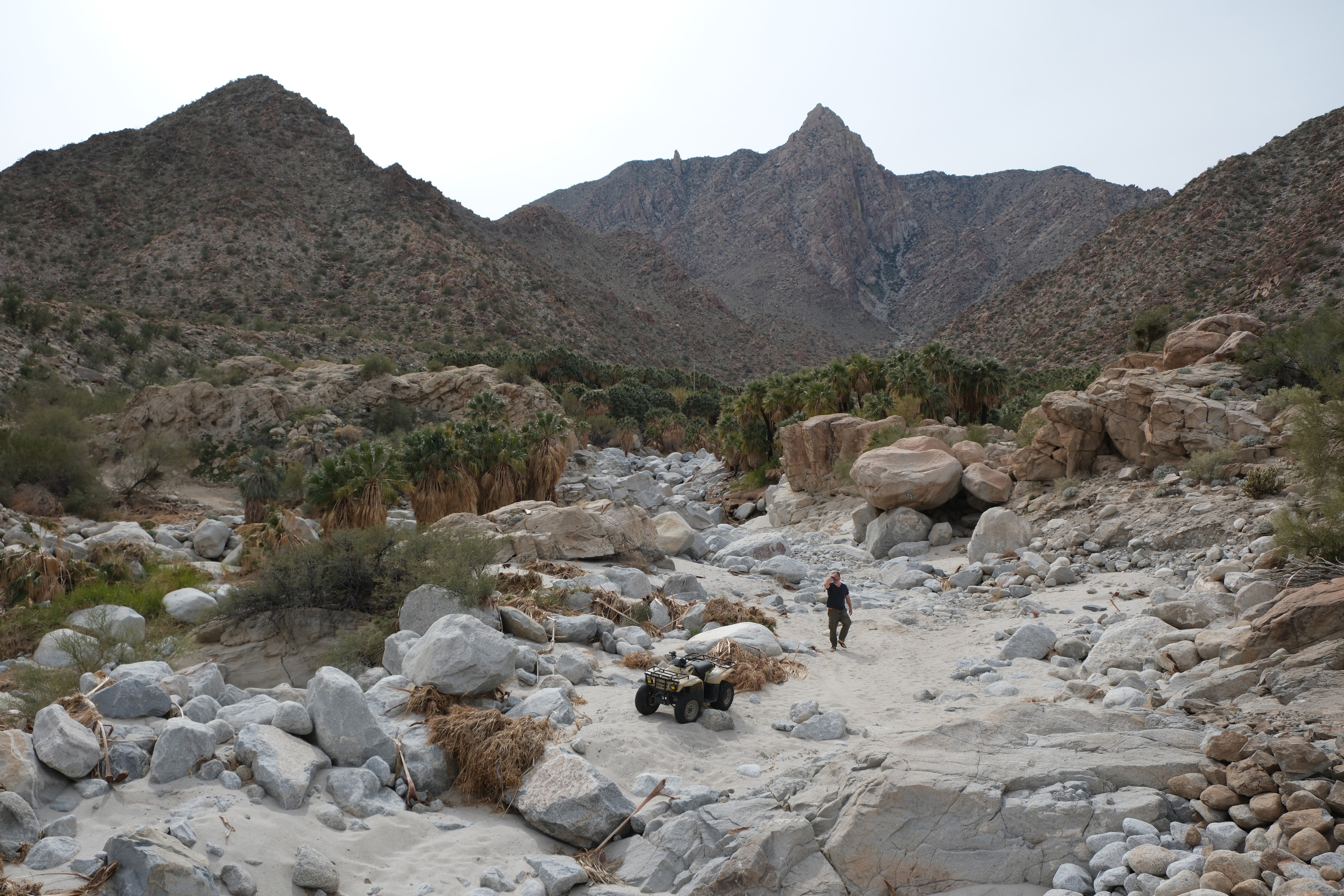
And is HPS just pulling up to the nearest local and saying, “Hey, which way?”
Yep. You just give them the name of the next village.
On the same trip, when we had to [borrow] the tractor, there was some kind of flood or rocks on the road, so we had to get around that and find another road. We had paper maps, we were doing the degrees, we were doing the compass, we were doing the GPS, and at one point, we sent the drone up to look for the road.
We found a ranch and said let’s go talk to the ranchers. But there was no way to get around it, and it was so humiliating. We had to turn back.
What do you feel we lose when we start using GPS without using analog navigation skills?
I think technology is killing basic human skills. I had a good friend who was also my assistant on our African rally. She was with me for five or six consecutive years. Every year, two weeks sitting in the car, and she had no clue where we were. Any day, I could ask, Where are we? [And she’d reply,] I don’t know, we’re just going.
Basic navigational skills are important. And I think Google Maps is killing these human instincts.
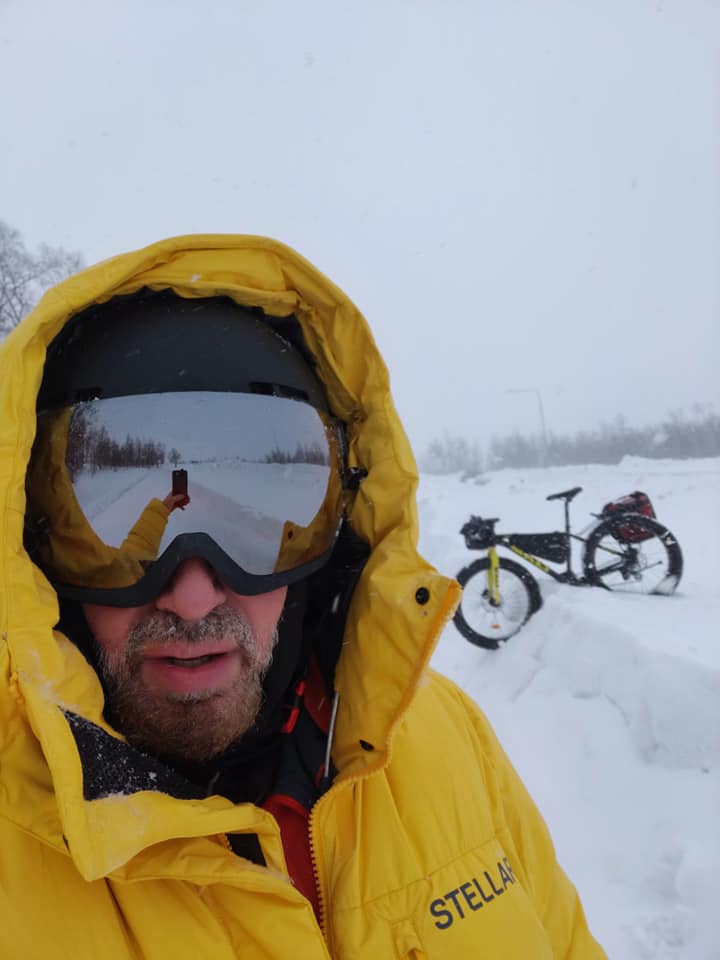
I think about that with human connection, where we don’t have to stop people and say, “Excuse me, do you have the time?” or “Excuse me, do you know this?” It’s all in our pocket, so it’s isolating.
Right, and it’s also like when you are in a place really off the grid and path, and you meet another human who is completely different than you, and he meets somebody completely different than him. And then it’s a unique experience for both of you—trying to find a common language and understand each other can be very difficult.
In Senegal, there’s a section where there are a lot of small villages and nomad settlements. And even though the official language of the country is French, in the countryside in rural areas, nobody speaks or understands French. So, it can be quite challenging. But it’s fun and exciting.
Someone could be just on the beach in Cabo being served drinks for the same investment of time and less energy. Why might someone instead choose an overland adventure?
There was a time when I was in Africa, and we had three flat tires, and we couldn’t fix the third one. We spent the night on the savanna, and I was running out of drinking water.
It was such a low moment when I was fearing for my life and dying of dehydration that once I managed to solve that problem and got to a town, I never appreciated water that much. Without that low, you couldn’t get to that high.
Read more: Ronnie Romance Tells All
Our No Compromise Clause: We do not accept advertorial content or allow advertising to influence our coverage, and our contributors are guaranteed editorial independence. Overland International may earn a small commission from affiliate links included in this article. We appreciate your support.


